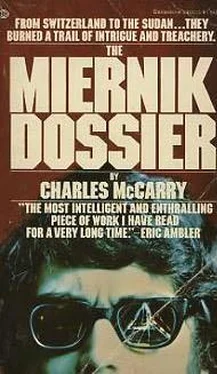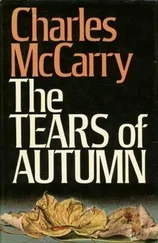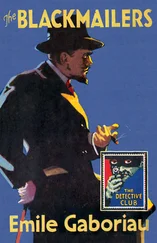4. Miernik, Christopher, and I were shown into apartments fitted with Western furniture. Apparently one of the amirs had had a shipload of beds, chairs, etc., sent down by Harrod’s around 1910. There were hunting prints on the walls in heavy frames, and several lamps with fringed shades: these were gas-mantle lamps, connected to nothing. The actual light was provided by an oil lamp. In a bookcase were a matched set of Sir Walter Scott, the essays of Macaulay, and several bound volumes of Punch for 1898 through 1903. It was all rather touching and quite comfortable. The slave who had opened the door for us came in with my baggage. I found him gazing curiously at me and realized that I still wore the Sten gun. I smiled, removed the magazine, cleared the action, and pulled the trigger on the empty chamber, smiling to show that my weapon was unloaded and I meant him no harm. He grinned in return and backed out of the room: I don’t know whether this was a sign of respect or an act of caution. When I inspected my baggage I noticed that Ilona’s camera case had been brought into my room by mistake. There was no way to return it to her, as she had vanished into the seraglio, so I put it aside and went gratefully to sleep.
5. When I woke I found a black child of about twelve sitting cross-legged beside my bed. As I opened my eyes he poured a cup of tea and thrust it into my hands. He hopped out of the room, returning with a tin bathtub, which he carried upside down over his head. The tub was soon filled with water, and the boy stood by as I bathed, taking the soap out of my hand and giving it back as necessity required. He offered in dumb show to shave me, but I did it myself while he held a mirror over the steamy tub. He gave me a breakfast of fried eggs and what seemed to be peppered mutton, watching brightly while I manipulated the knife and fork. I found that he had unpacked my bags; my clothes, freshly pressed, were neatly arranged in a tall armoire. The whole experience was like a description by Thackeray of the beginning of a weekend in an English country house a century ago. There was even a large pile of writing paper with the arms of the amirate embossed in one corner.
6. After breakfast the boy left me for a few moments, staggering out under a load of crockery. Ilona’s camera case, newly shined, with all the scratches on the leather filled with boot polish, stood on a table. I opened it. Inside the case I found the Lefca with which Ilona takes her innumerable photographs, a lot of film, and the usual extra lenses and filters. There was, also, an Exakta 35.millimetre reflex camera that I had never seen before. This is an East German camera. It contained no film. With no special curiosity, I opened the back of the camera, cocked it, and tripped the shutter. I saw no light through the lens. The opening was set at f2.8, so I should have seen a spot of light the size of a sixpence. I tried again a couple of times, then unscrewed the lens. At the back of the lens, inside the housing of the viewfinder, was a round metal object approximately the size of a half-crown. It was something more than half an inch thick. It took me some time to realize what it was. It was a short-range radio homing device of the kind that is attached to cars. Once activated, it emits a steady signal on a fixed frequency. Anyone knowing the frequency, and having suitable receiving equipment, can locate the homing device, estimate its distance, and follow the car in which it has been planted. As the device in Ilona’s camera was enclosed in a sealed plastic packet, I assumed that it had not been activated. I put it back where I had found it and replaced the other items I had taken out of the camera case.
7. Soon after I made this discovery, Prince Kalash appeared at the door with Christopher and Miernik in tow. We went along to the Arnir’s apartment, a series of very large rooms full of rugs; fantastic geometric designs covered the walls in a continuous coup d’oeil. The Amir awaited us at the end of a long room where he sat on a divan with papers covered in Arabic script scattered over the cushions. He is a long bony old man with the face of an eagle; Prince Kalash looks just like him. The Amir’s hair is white, and a close-cropped beard like a strip of bleached felt covers his black cheeks and chin. He looked us over with hard dark eyes and with such an expression of ferocity that I thought we had offended him in some way. None of us had bowed or fallen prostrate, but Prince Kalash would, I suppose, have told us had this been expected. The Amir, after inspecting each of us in turn, began to speak in the perfect English he learned at Winchester and Oxford. “I welcome you to my house,” he said. “I hope that you are comfortable. Your quarters are perhaps less picturesque than you anticipated. My father had the idea, entirely correct I think, that Europeans like to sleep in beds and sit on chairs. In this room you will have to crouch like a native.” He indicated a row of cushions and we sat down. “My son has told me of the great service you rendered him on the journey here. I am very grateful. There have always been fools in our desert, and that at least does not change. I am happy that none of you was injured. I hope to meet the young ladies who accompanied you. I hope they are comfortable too, but of course you wouldn’t know whether they are or not. I believe they are happy enough. As for the Cadillac, it is shot full of holes. I can’t think why that American wanted to give it to me, but it was kind of him. Perhaps he thinks I am an oil sheik. I rather wish I was.” (Prince Kalash afterwards explained that the Cadillac was a gift of “a rich friend of Paul’s.”) He stopped speaking and once again stared at each of us in turn. When his eyes fell on me I said: “We are most comfortable, Your Highness. Everyone has been very kind.” He nodded. To Christopher he said: “You are an American. Your country interests me.” Christopher looked expectant, but the Amir did not elaborate on his statement. Instead, he turned to Miernik and spoke in what sounded to be slow, careful Arabic. Miernik replied. The Amir nodded. “Remarkable that a Pole should speak Arabic,” he said. “What was your purpose in learning the language?” Miernik muttered something about scholarly interest. The Amir glared at him. “In the past we have had very few scholarly foreigners,” he said. “Usually if they spoke Arabic they were worldly indeed. Perhaps you are the herald of a new era in Africa. One hopes so. We have been through a very tiring time with the Egyptians and the Turks and the British.” He sank into another silence, unmoving on his divan. At length he looked directly at Prince Kalash, who stood up at once and led us out of the presence.
8. In an anteroom we found a Sudanese wearing European clothes. He stood idly by a window, smoking a cigarette. Prince Kalash, on catching sight of this man, changed the direction of his stride and seized him by the shoulder. He said something to the man in rapid Arabic and was answered in the same language. The man put a hand on Prince Kalash’s forearm and looked across the room at us, raising his eyebrows. Prince Kalash spoke another sentence in Arabic and then turned away. Miernik had followed the conversation with evident interest, but he made no comment as we walked through the house. I asked Prince Kalash who the man was. “Nobody,” he replied. “One of my horde of cousins. His name is Aly Qasim. He’s an irritating chap.” Miernik gazed silently at Prince Kalash during this explanation, then wagged his head in a gesture of disbelief. He went into his room without a word. If Prince Kalash noticed this behaviour, he made no mention of it.
9. At about five o’clock, we met the girls on neutral territory, in another room furnished in the Victorian style. They had been scrubbed and perfumed by young girls, much as we had been tended by boys. Apparently the household possesses any number of tin bathtubs and enslaved children. I gave Ilona her camera case. She put it carelessly on the floor beside her. “I thought they must have mixed up the bags,” she said. “I ought to get some wonderful colour pictures of this house. I only wish I had lights. What walls! The eye is absolutely caressed everywhere it looks.” She may well assume that I am too much the gentleman to have searched her case. In that she is wrong, as I seem to have been wrong in her. No innocent person carries the sort of thing I found concealed in her extra camera. I wondered if she had used the bug to guide the ALF to our camp at Kashgil, but I now think that unlikely. No doubt she is looking forward to using it in some future situation. What situation? I shall keep a close eye on the Exakta. And on Ilona, my newest and least likely enemy.
Читать дальше












